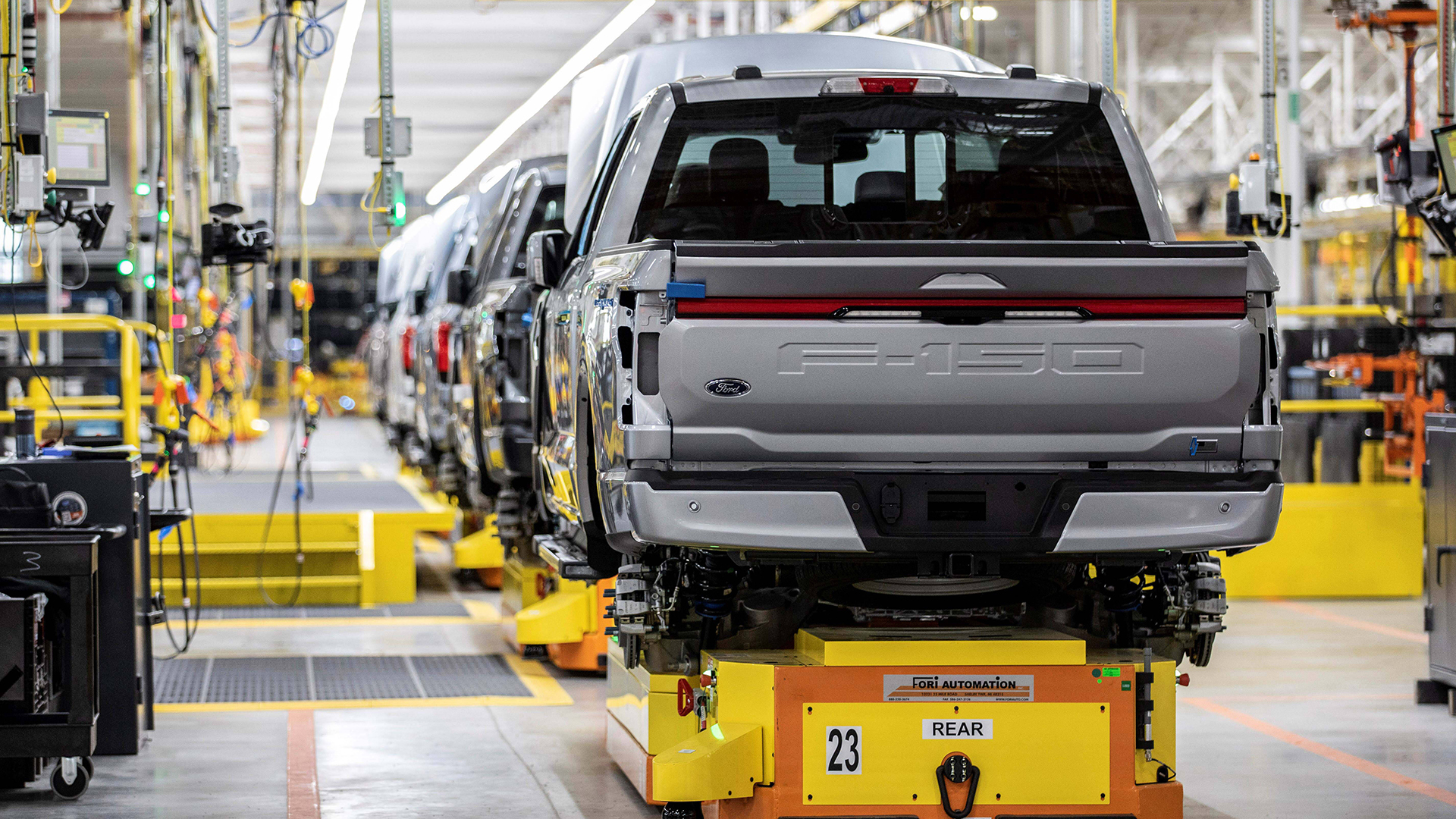Status: 08/12/2022 09:43 am
The US government wants to encourage the purchase of electric cars. But the program has a major catch: Manufacturing must take place entirely in the United States — a requirement that can rarely be met.
Americans and their cars, that’s a very special relationship. The bigger and louder the better. But in America too, the government now wants quieter, more eco-friendly electric cars instead of gas guzzlers roaring through the streets.
According to the Depreciation Act, anyone who buys an electric car can get a tax credit of up to $7,500. However, this only applies to individuals earning less than $150,000 per year. And cars can’t cost more than $55,000 — except for trucks and SUVs, where the limit is $80,000. These are the rules for consumers.
Specification: 100 percent made in the USA
Even car manufacturers Their cars must meet certain requirements to be fully qualified. They own it all: “As I understand it, no auto company has reached the threshold of 100 percent production in the U.S. right now,” says Emily Benson, a trade expert at the CSIS think tank in Washington.
Because if there is full financing, first: the electric car is assembled in the USA and second: the battery is mostly made in the USA. After all, minerals from certain countries should not be used in it.
Gain more independence from China
These rules may not initially be too strict, but will become stricter in the coming years: “All car companies now face the question: How do they move their production to America so that their entire supply chain is here? That’s the big hurdle.”
So it’s about supply chains. The US wants to become more independent from countries like China, which play a major role in the production of lithium and other minerals. Or from the Democratic Republic of Congo, a leading cobalt producer. Both minerals are important precursors in battery production.
German companies are also affected
So carmakers need to rethink quickly if they want to benefit from the consumer push to buy now. This also applies to German manufacturers in the US. VW, Mercedes-Benz and BMW have large production facilities in the US and some already have battery factories. Batteries are only collected there. The heart, the battery cell, is not yet domestically produced, but mostly bought in Asia.
“Again, it depends on the existing supply chains. And the level of costs for foreign companies to shift their supply chains to focus more on domestic production in the U.S.,” says Benson, the expert.
Electric cars accepted in the US
So automakers still have a long way to go on the road to sustainable and independent production of electric cars in the United States. Either way, American consumers can use the idea of switching to electric power.
According to several studies, nearly half of Americans can imagine driving electric cars instead of combustion engines — thanks to earlier subsidy programs. It remains to be seen whether the scheme’s tougher provisions in the DCA will put consumers in a poor buying mood.
EU: US subsidies for electric cars could violate WTO rules
The European Union considers the US subsidy guidelines a violation of World Trade Organization (WTO) rules. “We believe these are discriminatory if foreign manufacturers are disadvantaged compared to US manufacturers,” a European Commission spokeswoman said.
The EU agrees with Washington that tax breaks are an important incentive to boost demand for electric vehicles. But: “We therefore urge the US to remove these discriminatory elements from the bill and ensure that it is fully WTO-compliant.”

“Amateur coffee fan. Travel guru. Subtly charming zombie maven. Incurable reader. Web fanatic.”








More Stories
Nicolas Loufrani: Young Londoners Design Afro Hair Emojis
US Election: Trump Vs. Harris – 2024 poll numbers in America
Börse Express – USA: Retail sales rise unexpectedly